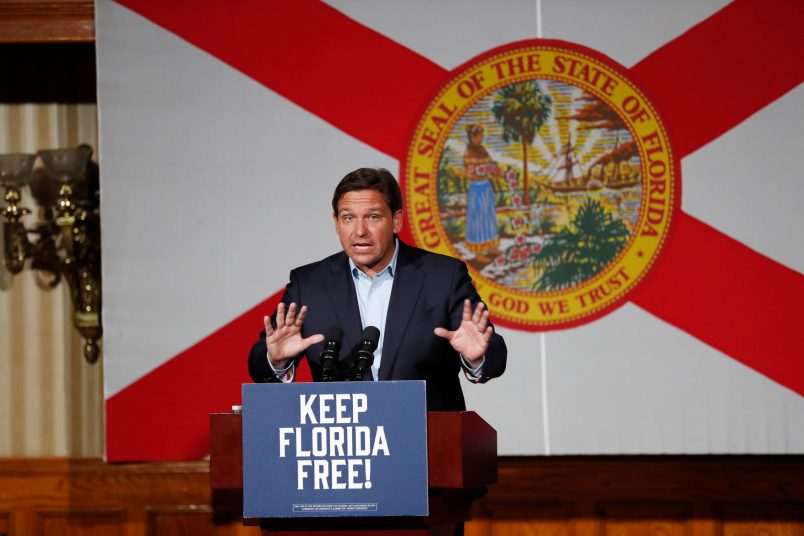As a publisher, I love highly kinetic pieces like Hunter Walker’s new article on the Axios journalist, Ben Montgomery, who Axios canned after he got crosswise with Ron DeSantis’s carnivorous Florida media machine. I’ll assume you’ve read the story. So I won’t rehash the details. (If you haven’t, just read it.) But I want to expand a bit on why it’s such an important story. It captures in a single incident key dynamics of our present treacherous political moment and the role of the political press within in it.
It’s fine for politicians and presidents to criticize journalists, their questions, the state of the profession — more fine than a lot of people let on. To say otherwise is special pleading. Criticism isn’t only okay in one direction. But what Ron DeSantis has developed in Florida is something far more predatory. It’s not about criticism. It’s a performative breaking and taming of reporters. In Florida it’s coupled with cryptic DeSantis funders standing up pro-DeSantis propaganda mills posing as real publications. DeSantis’s approach to the media is the one area in which people are right when they say he’s taken the Trump model and run it with greater efficiency and effect.
But the real issue here is Axios, the publication that immediately fired its own reporter in response to this. This is the downside and the civic achilles heel of a publication whose business model is access coupled with a purported inviolable neutrality that the subjects of its reporting can withdraw at any moment. Having spent more than a decade studying every intricacy of the advertising business of D.C. political news organizations I can tell you — because I was immersed in the world of the major D.C. ad agencies when Axios launched — that its central value proposition for advertisers and sponsors is the premise not only that it has no partisan bent but can never be accused of one.
That second point is key. Even the accusation is existential. And so is the potential loss of access.
This is why it is critical that truly independent news organizations like TPM exist. I have to step out from behind any false humility to say this. Because it’s true. We’re certainly not the only outfit this standard applies to. But we’re one of the best and actually getting better. We don’t have to jump when anyone tells us to. We’re not tied to the broader corporate strategy of a parent company which can change suddenly for reasons with no connections to political news or what we do. Our total focus is poring over the entrails of the political moment, figuring out which stories matter and doing all we can to try to drive them forward. We genuinely don’t care if some politician, oligarch or sub-garch lands a virtual sucker punch on one of our reporters. We don’t have to care what anyone says about us. We have one rule that governs our work and after that all we care about is delivering for our readers.
Big outfits can do things we can’t. That’s never lost on us. They can send ten reporters to cover every story. But we can be things they can’t. This is what I mean when I say that this article — on its face one of those sock-in-the-face, florid stories I always love — captures so much about the current moment in a microcosm. It’s not just “Oh, Axios sucks. DeSantis lashes out and they fire their reporter.” It’s the structure of how they’re organized, what they’re built to do. The insider outfits — though many do great work individually, and range with great scope organizationally — simply cannot cope with DeSantis-type figures. Because they can’t cope with them they can’t effectively cover them. Practitioners of this new politics of predation, itself an aesthetic register of authoritarianism, are a different kind of challenge they’re simply not up to.


